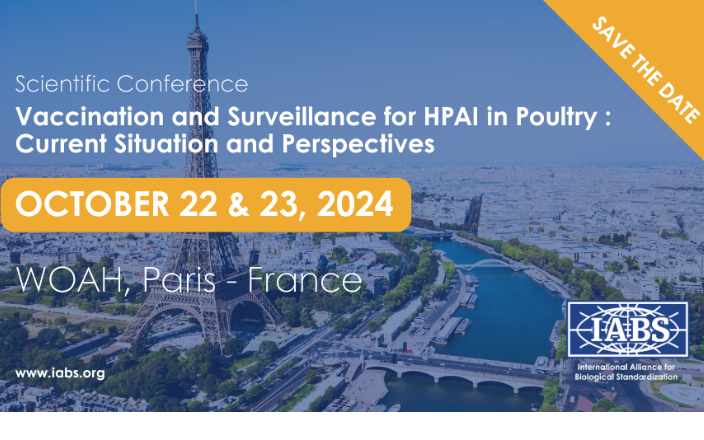The upcoming event, “Vaccination and Surveillance for HPAI in Poultry: Current Situation and Perspectives,” organized by the World Organisation for Animal Health (WOAH), is set to take place in Paris, France, on October 22-23, 2024. This hybrid meeting will gather experts from around the globe to discuss the pressing issues surrounding High Pathogenicity Avian Influenza (HPAI) in poultry.
Background and importance
HPAI, particularly the H5Nx 2.3.4.4b lineage, poses a significant threat to poultry, wild birds, and even mammals worldwide. The virus’s ability to spread rapidly and cause severe economic and ecological damage necessitates a comprehensive approach to control and prevention. The WOAH meeting aims to address these challenges by focusing on vaccination and surveillance strategies.
Objectives of the meeting
The primary goal of this meeting is to review the current situation of HPAI and explore future perspectives on vaccination and surveillance. The event will bring together a diverse group of stakeholders, including representatives from the World Health Organization (WHO), the Food and Agriculture Organization (FAO), the World Trade Organization (WTO), governments, poultry breeding and biological companies, animal welfare organizations, and scientists.
Key topics and discussions
- Current epidemiological situation:
- The spread of HPAI varies across continents, but the virus remains entrenched in wild birds and parts of the poultry population. This session will provide an overview of the current epidemiological landscape and the challenges faced by different regions.
- Vaccination strategies:
- Vaccination is seen as a crucial tool in controlling HPAI. Discussions will focus on the efficacy of existing vaccines, new developments in vaccine technology, and the practical aspects of implementing vaccination programs in different regions.
- Surveillance in vaccinated populations:
- One of the significant challenges of vaccination is maintaining effective surveillance. This session will explore methods to monitor vaccinated populations, detect outbreaks early, and ensure that vaccination does not hinder disease detection.
- Trade and economic implications:
- The impact of HPAI on international trade is profound. Experts will discuss how vaccination and surveillance can be harmonized with trade regulations to minimize economic disruptions while ensuring biosecurity.
- Animal welfare and public health:
- The welfare of poultry and the potential risks to human health are critical considerations. This session will address how vaccination can improve animal welfare, reduce the risk of zoonotic transmission, and enhance public health outcomes.
Expected outcomes
The meeting aims to produce a set of recommendations that will guide future policies and practices in HPAI control. These recommendations will be based on the latest scientific data and the collective expertise of the participants. The event will also foster collaboration among international organizations, governments, and the private sector, promoting a unified approach to tackling HPAI.
Conclusion
The “Vaccination and Surveillance for HPAI in Poultry: Current Situation and Perspectives” meeting represents a critical step towards addressing the global challenge of HPAI. By bringing together a wide range of experts and stakeholders, the event aims to develop innovative solutions that will enhance the effectiveness of vaccination and surveillance programs. This collaborative effort is essential for safeguarding poultry health, ensuring food security, and protecting public health on a global scale.
For more information, please consult the following link: IABS Conference Information

